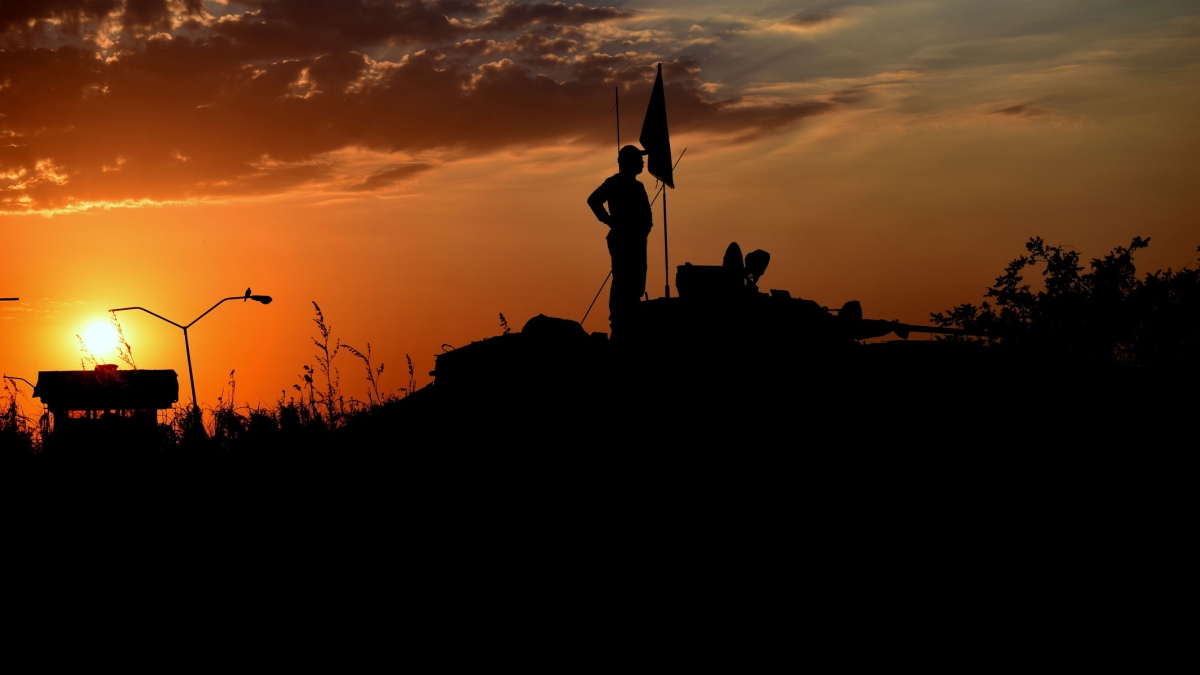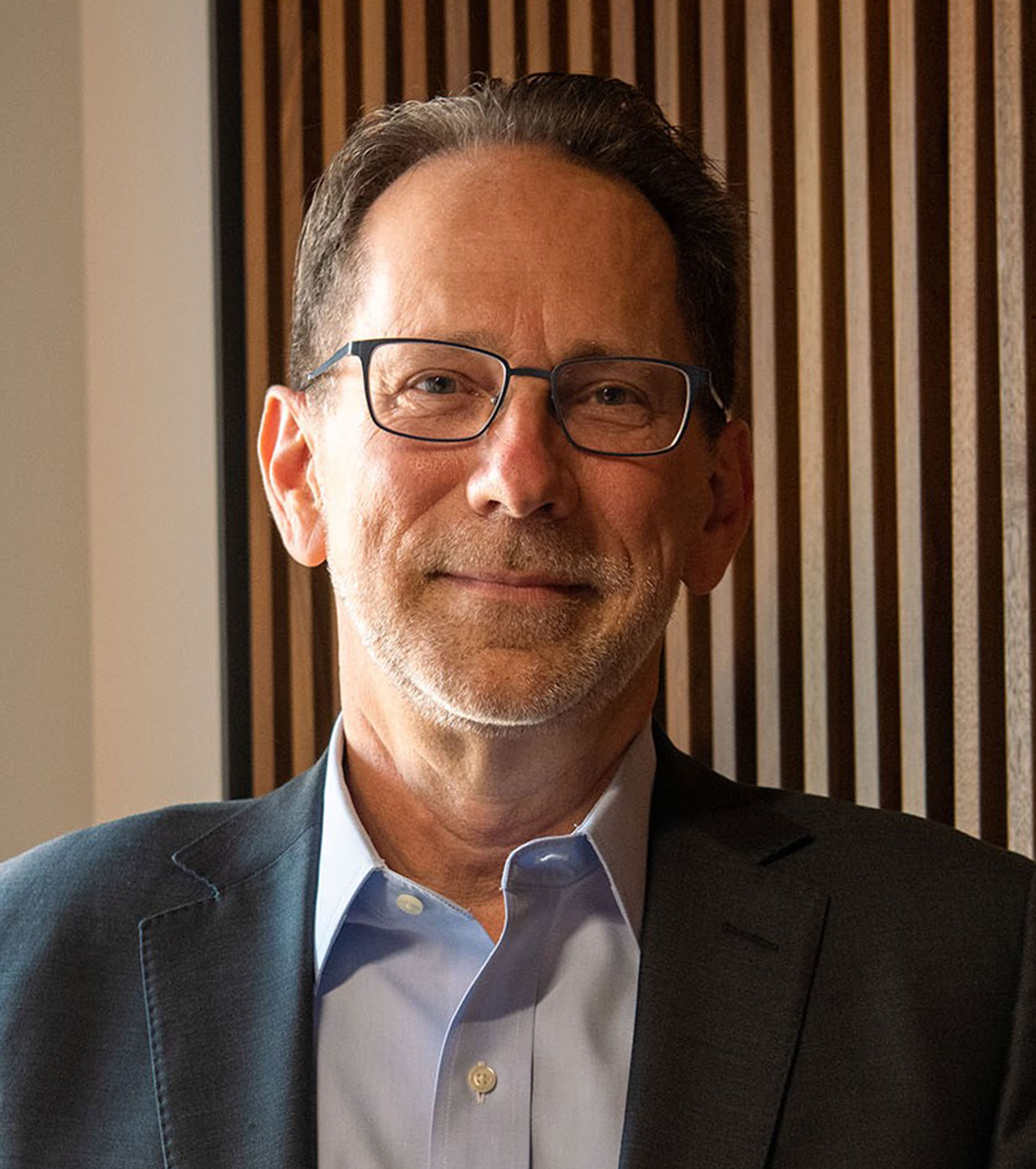State Department awards $2.6M grant to ASU to advance transitional justice in Ukraine, South Sudan

The U.S. Department of State Office of Global Criminal Justice (GCJ) has awarded Arizona State University a $2.6 million grant — one of the largest ever issued by the office — to implement a three-year project advancing transitional justice in Ukraine and South Sudan.
It will be led by former U.S. Ambassador Clint Williamson, distinguished professor of practice at the Sandra Day O’Connor College of Law at ASU and senior director for the International Rule of Law, Governance and Security program at the university’s McCain Institute for International Leadership.
The Advancing Transitional Justice in Ukraine and South Sudan (ATJUSS) project positions ASU to engage directly in two of the most volatile crisis zones in the world and on issues that are at the crux of resolution of these crises.
Clint Williamson
“This is the first major grant awarded by GCJ to address atrocity crimes beyond the conflict zones of Iraq and Syria,” Williamson said. “During my many years in government, and more recently while at ASU, I have been actively involved in efforts to bolster rule of law in countries where it is under threat, and nothing is more indicative of the breakdown of rule of law than the widespread occurrence of atrocity crimes.
“Whether these crimes take place in localized regions, as in Ukraine, or across an entire nation, as in South Sudan, the fact that they are rooted in conflicts which pose an existential threat to the countries involved only highlights the risk they pose to state integrity. Without a resolution of these crimes and accountability for those responsible, it is very difficult for a country to move past the conflict and to find true stability.”
When this project was announced by the Department of State, Williamson said it immediately caught his attention because it afforded ASU an opportunity to work in two of the most critical locations in the world, confronting issues that are at the heart of international peace and security.
“In Ukraine, these issues are at the forefront of the geopolitical tensions playing out between Western democracies and Russia,” he said. “In South Sudan, the conflict there has caused a massive humanitarian crisis that stretches far beyond the borders of the country and has had a destabilizing effect on a large part of eastern Africa. This project, though, presents an incredible opportunity for our team, and for ASU more broadly, to make a real-world impact in two regions that desperately need to put these conflicts behind them.”
Williamson, who served as U.S. ambassador-at-large for war crimes issues during the George W. Bush and Obama administrations, will lead a team that includes two other former war crimes ambassadors, Todd Buchwald and David Scheffer — the latter of whom is a current professor of practice in the School of Politics and Global Studies at ASU. Together, Scheffer, Williamson and Buchwald bring many decades of experience to ATJUSS as well as an extensive background with the conflicts in both Ukraine and South Sudan. They are joined in this effort by a group of leading experts from around the world, all of whom have comprehensive experience working in international criminal tribunals as judges, prosecutors, investigators, forensic experts and defense attorneys.
This ASU-led team of experts will work to build capacities in both countries to investigate, prosecute and adjudicate crimes rooted respectively in the armed conflict in South Sudan and arising from the conflict in and occupation of Crimea and other territories in the eastern region of Ukraine. Collaborating with local authorities, the project aims to help these governments and the international community establish crucial accountability for the conflicts — a critical step in addressing the instability that continues to thrive in both countries.
“The South Sudan conflict has generated one of the greatest humanitarian crises of our time,” Williamson said. “Over 4 million people have been internally displaced or forced to leave the country. In recent years, there have been more refugees coming from South Sudan than any other country in Africa and only exceeded globally by Syria, Afghanistan and Venezuela. Seven million people in South Sudan are in a state of food insecurity — the highest in the world.”
All of this is a result of the civil war between ethnic groups that began in 2013 and its aftereffects. The war was characterized by incredible brutality on both sides, with hundreds of thousands of people killed, widespread rapes and other crimes of sexual and gender-based violence, forced displacements of civilian populations, and conscription of large numbers of child soldiers. All of this violence has had an incalculable effect on the country, devastating the economy and making agricultural activity impossible, thus contributing to the increasing food and refugee crisis.
While the effects in Ukraine have not been as devastating, the ongoing conflict with Russian-backed separatists in the Donetsk and Luhansk regions, and the occupation of Crimea, have nevertheless created a high degree of instability in the country and a threat to global security. The Russian government and its local proxies in Ukraine have been intent on destabilizing the country, and fighting continues to this day along a 250-mile-long front that cuts across a densely populated area in eastern Ukraine. Since the conflict started in 2014, over 14,000 people have been killed. This number includes the 298 people on board Malaysian Airlines Flight 17, which was shot down by a missile fired by separatist forces in July 2014.
“Ukraine currently has well-developed capabilities in the law enforcement and judicial spheres, but their judges, lawyers and investigators will benefit from specialized training focused on the handling of crimes that violate the tenets of international humanitarian law. This is where we hope to be of assistance,” Williamson said.
Beyond the international experts involved, the ATJUSS team also includes two local organizations in Ukraine and two in South Sudan. These local partners will be involved in all three phases of the project: an initial assessment of needs and development of training curricula; the specialized training of lawyers, judges, investigators and forensic experts in addressing atrocity crimes; and final practical exercises. At the conclusion of the grant funding, the Ukrainian and South Sudanese partners will continue to work with local law enforcement and judicial officials to ensure the sustainability of this project, utilizing the training materials developed by ATJUSS, providing refresher training sessions and expanding training to an even broader group of local officials.
With the operations detailed in the ATJUSS project scheduled to end by March 2024, Williamson hopes both countries will be better equipped with the resources they need to achieve the desired accountability by this time — a crucial step toward long-term stability.
“We look forward to working closely with the Department of State in addressing the wide range of atrocity crimes that have occurred in South Sudan and Ukraine, in advancing accountability in both countries, and ultimately, in helping secure justice for the victims of these crimes,” Williamson said.
“We are honored that the Department of State has placed its trust in our team to implement such a sensitive and impactful project — one that can hopefully further the process of stabilization and reconciliation in these two war-torn regions.”
Top photo by Nikhil Karmachandran/iStock
More Law, journalism and politics

Exhibit uses rare memorabilia to illustrate evolution of US presidential campaigns
After one of the most contentious elections in history, a new museum exhibit offers a historical perspective on the centuries-old American process.“We The People! Electing the American President” had…

TechTainment conference explores the crossroads of law, technology, entertainment
What protections do writers, actors, producers and others have from AI? Will changing laws around name, image and likeness (NIL) eliminate less lucrative college sports programs?And what does…

How to watch an election
Every election night, adrenaline pumps through newsrooms across the country as journalists take the pulse of democracy. We gathered three veteran reporters — each of them faculty at the Walter…
